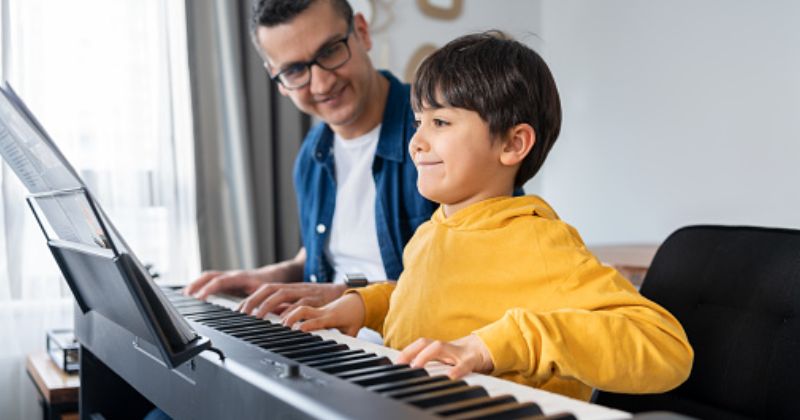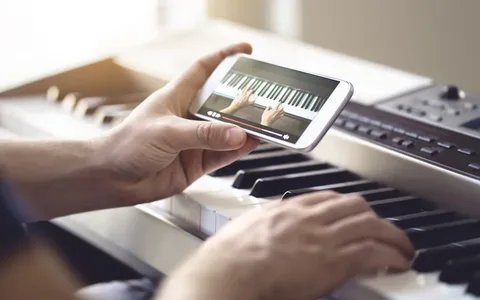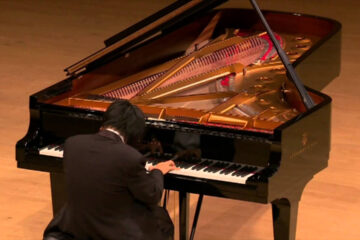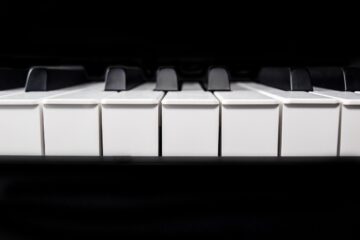Wondering how long it takes to get good on the piano? Discover realistic timelines, tips, and what truly makes you improve. Have you ever stared at a piano, fingers itching to play, only to wonder—“How long will it take before I can play something that sounds… good?” You’re not alone. Every beginner asks this question at some point. The answer? It’s not one-size-fits-all. But don’t worry, this article will give you real expectations, inspiring examples, and some no-nonsense tips to help you improve faster.
Whether you dream of playing pop songs or classical masterpieces, understanding the piano learning time involved is key. Let’s unpack what “getting good” actually means—and how to get there.
What Does “Getting Good” Even Mean?
Before diving into timelines, let’s define what “good” means—because it’s different for everyone.
- For some, it’s playing their favorite song by ear.
- For others, it’s reading sheet music or passing graded exams.
- And for a few, it’s confidently improvising or composing.
So, when we talk about “getting good,” think of it as reaching your musical goals—not perfection. Improvement is the goal, not comparison.
How Long Does It Really Take to Get Good on the Piano?
Average Learning Milestones
Here’s a rough timeline for adult beginners practicing consistently (about 30–60 minutes a day, 4–5 days a week):
| Time Frame | What You Can Expect to Learn |
| 1 Month | Basic hand positions, simple melodies, maybe your first song. |
| 3–6 Months | Chords, rhythm, and easier songs with both hands. |
| 1 Year | Sight-reading, pop songs, basic classical pieces. |
| 2–3 Years | Intermediate repertoire, fluency in reading and playing. |
| 5+ Years | Advanced performance, improvisation, and musical expression. |
Of course, these are just benchmarks. Some people move faster. Others take their time—and that’s perfectly okay.

Factors That Affect Your Piano Learning Time
Let’s talk about what speeds you up—or slows you down.
1. Practice Quality
You could practice for 2 hours and achieve less than someone who practices with focus for 30 minutes. Smart, mindful practice wins over long, distracted sessions.
2. Teacher vs. Self-Taught
A good teacher can spot mistakes early, keep you motivated, and provide structured guidance. But self-taught players with good resources can still make serious progress.
3. Musical Background
Have you played another instrument before? You might already know rhythm, reading music, or ear training—which shortens your learning curve.
4. Age Doesn’t Matter (Much)
You might’ve heard it’s harder for adults to learn. That’s a myth. Adults have discipline and life experience, which can outweigh a child’s sponge-like brain.
5. Consistency Over Intensity
Practicing 20 minutes every day is better than cramming 2 hours once a week. The brain (and fingers) need time to absorb skills.
How to Speed Up Your Progress on Piano
Here are a few actionable tips that will help you get “good” faster.
1. Set Clear, Achievable Goals
Instead of just saying “I want to get better,” aim to:
- Learn one song per month
- Master a new scale each week
- Sight-read for 5 minutes daily
2. Record Yourself Weekly
It’s awkward at first—but hearing your progress helps you stay motivated and spot weak spots.
3. Use Modern Tools
Apps like Simply Piano, Flowkey, or Yousician make self-teaching fun and track your progress.
4. Focus on Repetition
Don’t just play through pieces. Loop tough sections. Practice with intention. Ask, “What am I trying to improve right now?”
5. Take Breaks
Your brain needs time to process what you learn. Walk away. Stretch. Come back refreshed.
Common Pitfalls to Avoid
Over-Expecting Quick Results
You won’t sound like Beethoven in a month—and that’s okay. Rushing leads to frustration.
Comparing Yourself to Others
Everyone starts somewhere. Your journey is your own. Focus on your next step, not someone else’s highlight reel.
Skipping Technique Practice
Scales and finger exercises may feel boring—but they build the strength and control you need for everything else.
The Joys of Getting Good Slowly
In a world of instant gratification, piano is refreshingly honest. The time you invest directly reflects in your playing. And the coolest part? Every small win counts.
- Playing your first song without looking at the keys.
- Finally nailing that tricky rhythm.
- Feeling your fingers move with confidence.
These tiny moments feel huge when you’re the one experiencing them.
In Contrast: The “Forever Beginner” Myth

Some people feel stuck after a few months and think, “Maybe I’m just not talented.” But talent is overrated. The real magic is:
- Staying consistent
- Enjoying the process
- Being patient with mistakes
Even professional pianists keep learning. There’s no finish line—only progress.
What the Pros Say
🎹 Lang Lang once said, “Music is not just technique—it’s emotion, storytelling, and discipline.”
🎵 Studies also show that consistent piano practice improves brain plasticity, memory, and even emotional resilience. It’s not just about sound—it’s about mental health, too.
Final Thoughts: So, How Long Will It Take?
If you want the short answer: You can sound good in 6 months, and feel great about your playing in 1–2 years.
But if you want the real answer: It depends on your goals, habits, and mindset.
Focus on progress, not perfection. You’ll be amazed at how far you can go—even with just a little effort every day.
✅ Call to Action Have you just started your piano journey, are you thinking about it? Drop a comment and share your biggest question or challenge. Or subscribe for weekly piano tips that keep it real (and fun)! Read More…>>>



0 Comments